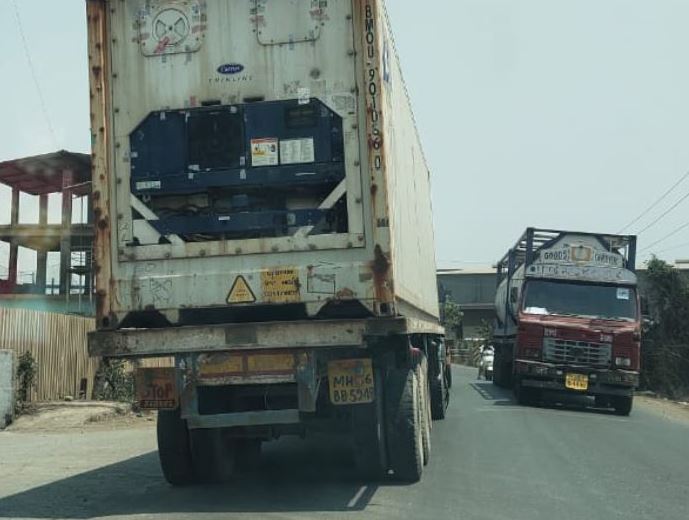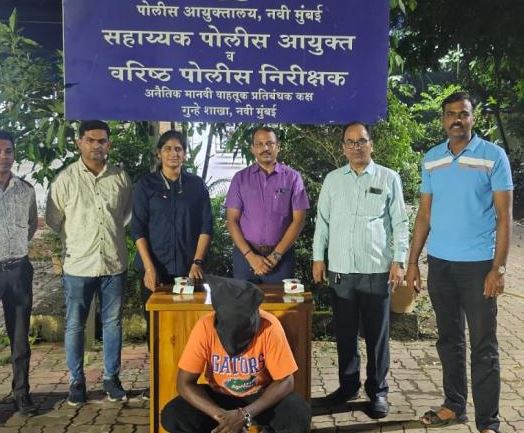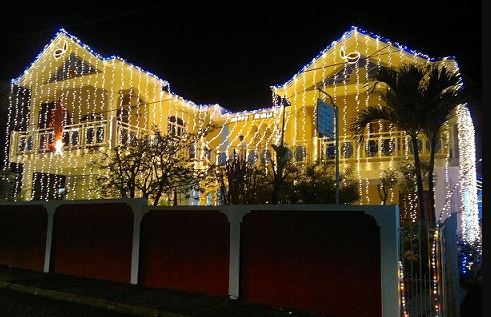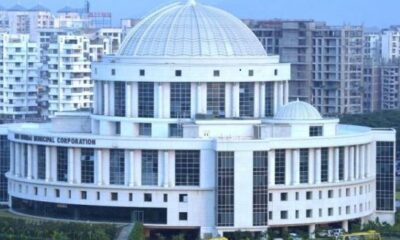Latest News
Fears Grow As Heavy Vehicles Re-enter Despite Dastan-Dighode Route Ban

As heavy vehicles resume travel on the Dastan-Dighode route despite a ban, worries grow.
The Return
The resumption of heavy vehicle travel on the Dastan-Dighode road, which was previously banned by local officials, is causing concern among the residents of Uran taluka. The public’s concerns over the success of the administration’s implemented measures have been sparked by the heavy vehicle fleet’s return.
The amount of heavy trucks on the roads in Uran taluka has sharply increased as a result of the area’s rapid development. The number of heavy vehicles has greatly grown with the building of Container Freight Stations (CFS) and empty container warehouses in places like Veshvi, Chirle, Dighode, Vindhane, Chirner, Mothi Jui, and Kalambusare. As a result, the roads are getting harder and harder to handle the increase in traffic.
Growing traffic congestion on Dighode Circle and Dighode Chirle Road is especially concerning as it presents a major obstacle for both locals and commuters. The groups most impacted are the working class and students, who frequently spend hours stuck in traffic.
Government involvement is required due to the numerous protests and hunger strikes that have been sparked by the irritation caused by traffic congestion. In reaction, the police administration hung banners at Dighode Naksha, prohibiting large trucks from utilizing the Dastan-Chirle road via Dighode. Heavy trucks continue to travel this road despite these attempts, casting doubt on the ban’s effectiveness.
Police administration inaction is concerning since high vehicle traffic continues to have the potential to cause massive traffic jams again, which might put innocent people’s lives in jeopardy. As such, the public is increasingly calling on the police administration to take immediate action to resolve the matter and put in place efficient controls over the movement of heavy vehicles.
Latest News
Navi Mumbai Police Arrest African National With Rs 1 Crore Worth Of Cocaine In Ulwe

The Anti-Human Trafficking Unit (AHTU) of Navi Mumbai Police arrested Jeorge Ocante DaSilva, a 35-year-old native of Guinea, on Monday for possessing 410 grams of cocaine, allegedly intended for illegal sale. Acting on a tip-off, API Alka Patil of the AHTU led a raid at RM Heights Building in Ulwe, where DaSilva was found in possession of the narcotics.
Around 2:30 p.m. on October 28, officers discovered 410 grams of cocaine, valued at approximately Rs 1,02,50,000, hidden in DaSilva’s bedroom. Authorities also seized a mobile phone, a black Tabata weighing scale, scissors, plastic packaging bags, and a sky bag, bringing the total seizure value to Rs 1,02,55,610.
An FIR was filed at Panvel City Police Station under Sections 8(a) and 21(a) of the Narcotic Drugs and Psychotropic Substances (NDPS) Act. Dasilva was presented in court and remanded to police custody until October 31, 2024. Investigations are ongoing, with the Crime Branch seeking potential accomplices and sources of the narcotics. Notably, Dasilva has a prior NDPS case registered at Nahar Police Station in Mumbai.
Latest News
Taloja Society Chairman Detained For Allegedly Abusing Residents And Objecting To Diwali Decorations

The chairman of a housing society in Taloja Phase One has been detained by Taloja police following allegations of verbal abuse toward residents, including women, and objections to Diwali lighting in the complex. The incident occurred on Tuesday night, sparking outrage among residents.
According to the police, the chairman is accused of abusing a woman with intent to insult her modesty, provoking a breach of peace, and engaging in criminal intimidation. A formal complaint was filed, and the chairman was promptly taken into custody.
The situation intensified after a video of the incident went viral on social media platform X (formerly Twitter), showing a group of men, allegedly from the housing society, verbally abusing residents and threatening to halt Diwali decorations. The video received widespread attention, with users expressing shock over the treatment of residents.
Police officials confirmed that the chairman’s detention is part of an ongoing investigation into the incident. Residents are awaiting further action as authorities work to address the disturbance and ensure the safety of the community amid Diwali festivities.
Latest News
Thane Sees Surge of Nomination Filings for 2024 Vidhan Sabha Election

The final day for filing nominations for the 2024 Vidhan Sabha General Election witnessed a surge of candidates in Thane district, with a total of 281 applications submitted across 18 assembly constituencies. This high turnout signals a competitive race for seats in the upcoming election.
Among the nominees, 114 candidates represent various political parties, while 167 have filed as independents, reflecting a diverse array of participants aiming to represent Thane’s voters. Nominations were filed throughout the day with election decision officers at each constituency, marking an essential step in the electoral process.
Collector and District Election Decision Officer Ashok Shingare announced that the scrutiny of these nomination forms is scheduled for October 30, 2024. Following this verification process, candidates who wish to withdraw their names from the race may do so until November 4, 2024.
As the election date approaches, Thane’s political landscape appears more dynamic than ever, with a record number of candidates ready to contest the assembly seats, making for an engaging electoral season for voters and candidates alike.
-

 India3 years ago
India3 years agoAs the arrangement with Prashant Kishor falls through Rahul Gandhi has gone overseas again and is uncontactable
-

 Fact Check4 years ago
Fact Check4 years agoNidhi Razdan, fake Harvard professorship, and here is the explanation through her blog.
-

 Latest News3 years ago
Latest News3 years agoTata wins Air India with ₹18,000 crore bid
-

 Technology3 years ago
Technology3 years agoBSNL reveals all new 4G plans starting at ₹16
-

 Latest News3 years ago
Latest News3 years agoGovernment has spent ₹9,725 crores on Covid-19 vaccination drive so far
-

 Latest News3 years ago
Latest News3 years agoJharkhand government cuts Petrol price by massive ₹25 a litre but with a catch
-

 Navi Mumbai4 years ago
Navi Mumbai4 years agoNavi Mumbai civic body raids and tests morning walkers, many found COVID positive
-

 Latest News3 years ago
Latest News3 years agoRaj Kundra Gave ₹25 Lakh Bribe to Mumbai Crime Branch to Avoid Arrest













